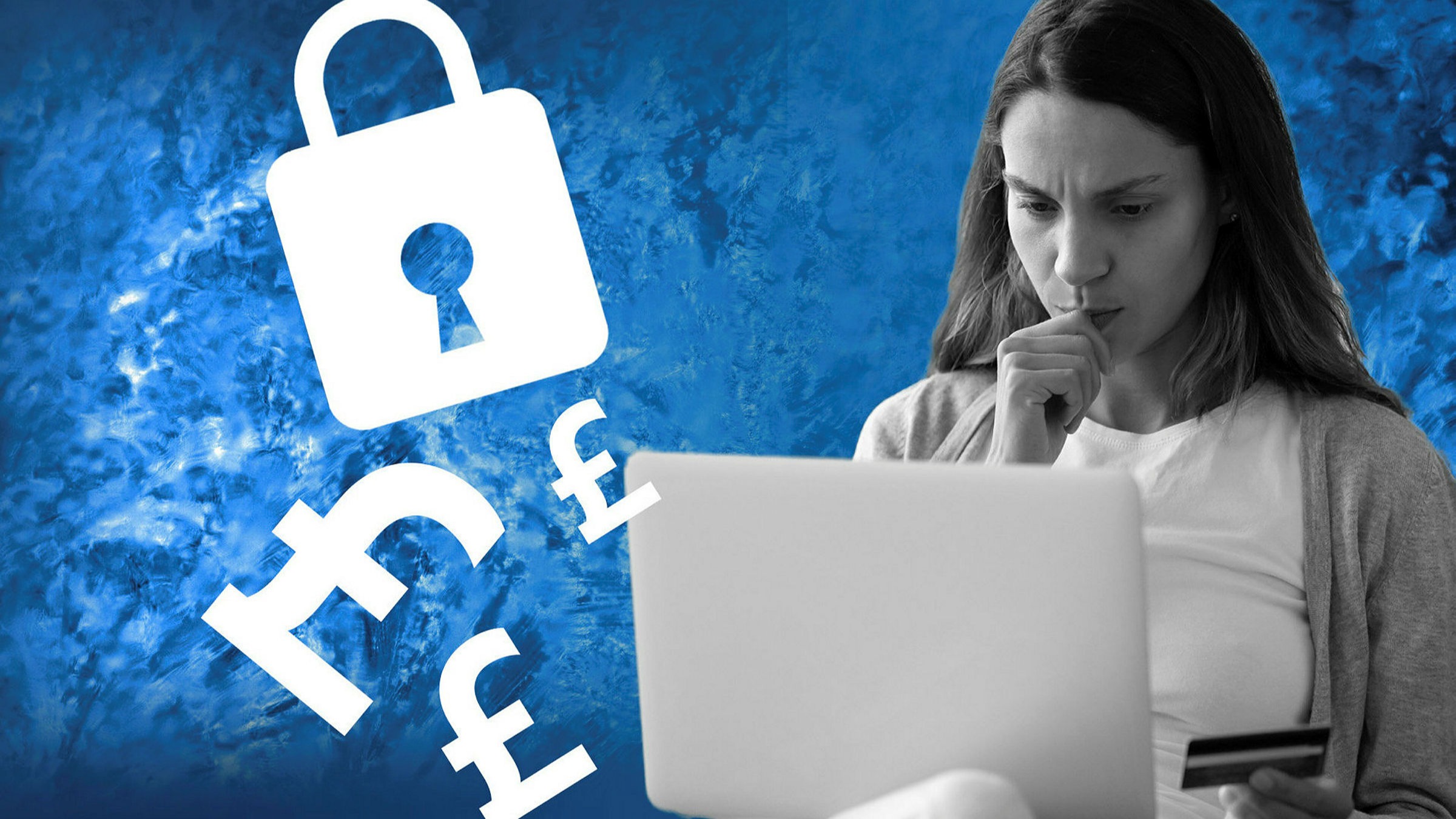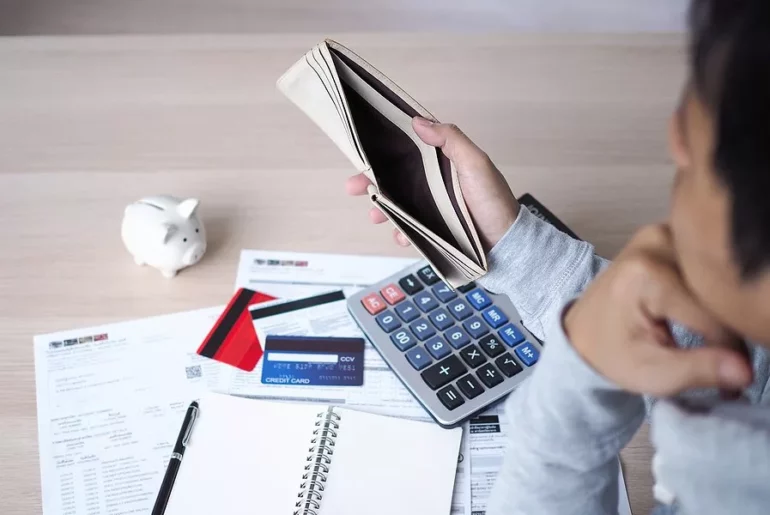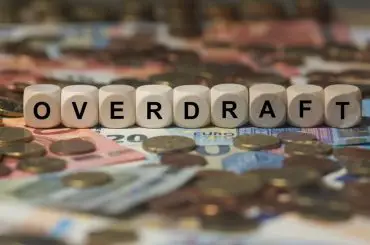Information presented on this web page is intended for informational and educational purposes only and is not meant to be taken as legal, financial, investment or tax advice. We do not accept any responsibility for any trading or investment related losses. Please review our disclaimer on before taking action based upon anything you read or see.
How long can your bank account be frozen? Many people usually ask this question today. Thus, we have made this article to aid you. You mind your own business one minute, purchasing groceries or doing some internet shopping the next. Your payment is refused the following minute, and you learn the bank has blocked your account. Your bank is required to notify you if your account is blocked.
However, they are not required to inform you ahead of time, and they will not always explain why. It might take days for a letter to appear in the mail if you’ve had a payment denied even though you know there’s money in your account. The issue now is how long can your bank account be frozen. This article goes into much detail.
How Long Can Your Bank Account Be Frozen For

It will not take long to get your bank account unfrozen by the compliance officer. You must present the agreement and invoice associated with the blocked transaction and describe the economic context. At this point, the bank will need you to supply cooperative contracts and invoices to prove the transaction’s financial backing.
It will most likely be handled within a few weeks if you produce your bank with the proper paperwork. If the NCA is investigating, you may not hear anything else for up to 42 days. Unless there is a court order, the bank must generally surrender the bank account when that term has expired.
Furthermore, while putting the paperwork together, you must be pretty cautious.
Every document you give to the bank should be accurate and consistent. Otherwise, your account may be suspended for an extended time, and forged agreements and invoices may land you in jail.
Why do Banks Freeze Accounts?

Accounts are frozen for a variety of reasons. This includes:
The suspicious or criminal activity
Monetary rules have been severely tightened in the aftermath of the September 11 terrorist attacks to prevent fraudsters and bandits from using banking firms to perform their operations.
If a banking firm believes the account owner is participating in illegal or dubious behavior, such as theft, it has the authority to suspend the accounts.
They get skeptical when huge cash is deposited in an institution and then moved to appear as though they are from a natural product. This type of deal is often examined.
Elements of Illegal or Unethical Behavior
More actions that may appear questionable and lead to your accounts being locked are listed below:
Unknown source of cash contributions and expenditures: If you get a large amount of money as a result of a bequest, do not tell your checking account administration.
The data in your client file is incorrect or misleading: Ensure you submit correct personal details while creating an account. You should contact your bank as rapidly as feasible if you relocate, or change your name, or mobile number. If the phone isn’t answered or is unplugged in particular, it’s likewise a source of suspicion.
Huge fund transfers, mostly overseas money transfers: Huge fund transfers, particularly those with rounded amounts like 7000, 15,000, or 25,000, are closely monitored by banks.
This stands as a red flag if you execute such deals or with equal sums of 5,999, 6,999, or 9,999. Significant cash transactions in your institution might as well be seen as a source of suspicion. Money is power, as we all understand, but so are criminals.
Multiple accounts with the same identity or recurrent transactions: It’s particularly suspect if you move money across your institutions on a frequent basis.
Contributions from questionable places: If you collect fees from a company or person that has already been flagged for inappropriate actions, your institution may probe into the origin of your funds.
The sharp increase in commercial actions: If your regular bank behavior of money transfers becomes excessive, the institution may take action.
Financial fraud: This includes smuggling suspicious commodities including guns, rare metals, and Van Gogh artworks are among the high-risk things purchased.
Becoming a victim of a scam
You are safe when your profile is locked in case of a security compromise. If your institution discovers transactions that don’t match your regular spending patterns, it’s possible that your institution has been compromised or your wallets have been taken.
To safeguard your cash, they may apply a brief block on your bank. When you’re in line at the payout counter or attempting to complete an online purchase, you could notice the freeze. Calling to verify that you are conducting the deal may generally release the protection freeze.
Technical challenges
Technical difficulties with bank accounts might result in temporary deactivation or freeze. This may happen if someone gains unauthorized access to the bank’s computer system. It may also occur if the bank’s servers, which store client data and bank details, are down for maintenance.
If your computer or home network issues receiving data, your account may look disabled or hard to access. Still, as your service is restored, your report will operate adequately.
Debt recovery
If you owe money, your lenders may be able to put a hold on your bank account, making it look frozen. You won’t be able to collect money or make transactions right away.
The rules of your state determine the power of a creditor to freeze your bank account, but your bank should notify you and provide information on which funds are exempt from the freeze and accessible for you to use.
Staying safe from hackers
The freezing of your bank account may be a hacker’s effort to get access to your personal information in certain situations. Phishing is a kind of online scam in which someone sends you an email that looks to be from your bank.
The notification will usually advise you that your account has been frozen and that you must respond by writing with personal information such as your bank details, Social Security number, and location to restore it, instead of responding to the email, check to verify whether your account is operational by signing in online or phoning your bank directly.
You’re working in a high-risk industry.
Even if the business is lawful in the state where they reside, banks may shut or refuse to create accounts for persons in specific professions. The Federal Deposit Insurance Corporation (FDIC) produced a list of company categories that banks were expected to monitor in 2011, and many banks refused to establish accounts for such firms.
Although the FDIC removed the list in 2014, some banks still refuse to operate with these companies. Sports betting, model escorts, and pornographic material are:
- Potential red flag enterprises, coin dealers, payday loans, check to process.
- Recreational and medical marijuana, drug paraphernalia.
- Telemarketing, and specific, multi-level marketing schemes.
Administrative considerations
Banks, like any other major corporation, undergo restructuring. They may shut your branch or cease operations in your state. If your account is inactive, meaning you haven’t used it in a long time, your bank may shut it. Depending on where you reside, a report might be labeled inactive after three to five years of inactivity.
A notification from the bank stating it intends to cancel a dormant account may arrive. But if you’ve moved, they may be unable to contact you. With a few easy actions, you can prevent your accounts from being dormant:
- Examine all of your accounts.
- Set up automated transfers in and out of the account regularly.
- Make sure the bank has your current relevant information.
Frequently Asked Questions
If your profile is blocked because your bank is examining your activities, the freeze usually lasts around ten days for simple cases and 42 days for more complex issues.
What steps do I need to take to unfreeze my bank account online?
The account holder may use the bank’s Net banking site and go to the “Update PAN” section. The account holder must enter his PAN information and, if appropriate, submit his PAN or Form 60. The bank will unfreeze the account after the papers have been correctly uploaded.
Is it possible to withdraw funds from a blocked account?
No. Account holders who have their accounts frozen cannot make any payments, acquisitions, or transfers. They may, however, be allowed to continue to deposit and transfer money into it. Stated, that a customer may deposit money into an account but not withdraw it.
How can I prevent my bank account from freezing in the future?
Avoiding the chance of your bank account being blocked may seem straightforward. Yet, unforeseen events may occur right under your nose. As a result, you may prevent your bank account from freezing in the future by following these steps:
- The most straightforward approach to avoid future account freezing is to use your account responsibly and securely.
- It would help if you did not ignore calls from debt collectors. It’s also best to pay your credit cards as soon as feasible.
- If you owe money to a bank, you should close your account there.
- Create a new account with a different bank. Keeping your accounts with a bank with which you do not have a loan connection is a better choice.
- Keep an eye on your bank statements to ensure there hasn’t been any fraudulent activity.
- Consult a lawyer
Conclusion
Finally, banks and financial organizations suspend and prohibit accounts for a myriad of purposes. However, in the vast majority of situations, it is owing to a discrepancy in your account or perhaps an outstanding obligation. To this end, the tips above will aid you immensely.




